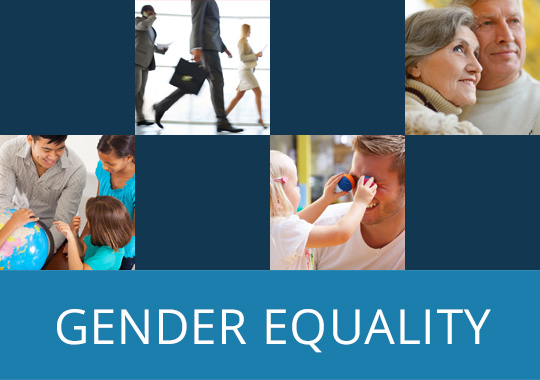Counter-terrorism

At the same time, attacks on the rights of women and girls are a common feature of many recent terrorist movements. Looking at the gendered impact of terrorist activities implies recognising the fact that people are not equally at risk and not equally able to recover from attacks, especially the most vulnerable, where women are often over-represented. In the same way, responses to terrorism can impact differently on women and men, for example it is crucial to ensure that negotiations with terrorist groups are not carried out at the expense of the rights of women. Understanding the gender equality dimension can also improve terrorism prevention policies, by deconstructing stereotypical perceptions of women’s and men’s roles in terrorism and counter-terrorism, whereby men are often seen as perpetrators and women as passive victims. In fact, women’s patterns of involvement in terrorism (their recruitment, motives, rewards and roles), may differ from those of men. In addition, women and men often highlight different concerns and bring different perspectives, experiences and solutions to policy-making. Understanding these differences, can help ensure a more comprehensive approach to counter-terrorism.
Gender mainstreaming and counter-terrorism at the Council of Europe
The Council of Europe Steering Committee on Counter-Terrorism (CDCT- formerly CODEXTER) started to investigate the gender equality dimension of its work in 2014 through a "Discussion Paper on possible gender-related priorities”, which analysed gender-related issues in the field of counter-terrorism, including the role of women as terrorists and the added value of integrating a gender perspective in this field, in terms of policy efficiency. In 2016, the CODEXTER examined a paper on “The roles of women in Daesh”.
See also sections on corruption and money laundering and on justice.
Council of Europe's activities and tools
- The roles of women in Daesh, Paper, Committee on Counter-Terrorism, 2016
- Possible gender-related priorities, Discussion Paper, Committee on Counter-Terrorism, 2014
Other resources
- Radicalisation and counterradicalisation: A gender perspective, Briefing, European Parliament, 2018
- Radicalisation and violent extremism – focus on women: How women become radicalised, and how to empower them to prevent radicalisation, Study, European Parliament
- Supporting Civil Society Initiatives to Empower Women’s Roles in Countering Violent Extremism and Radicalization that Lead to Terrorism, Workshop Recommndations, Organization for Security and Cooperation in Europe, 2015
- Women, terrorism and counter-terrorism, Article, Organization for Security and Cooperation in Europe, 2014
- Women and Terrorist Radicalization, Final Report, OSCE Secretariat – OSCE ODIHR Expert Roundtables, Organization for Security and Cooperation in Europe, 2013
- Gender Mainstreaming in the Work of UNODC, Guidance Note, Brief on gender and terrorism prevention (page 62), United Nations Office on Drugs and Crime, 2013
- United Nations global women, peace and security agenda, UN Women
- United Nations Security Council Resolution (UNSC) 1325 on Women, Peace and Security and UNSCR 1889, 1820 and 1888.



